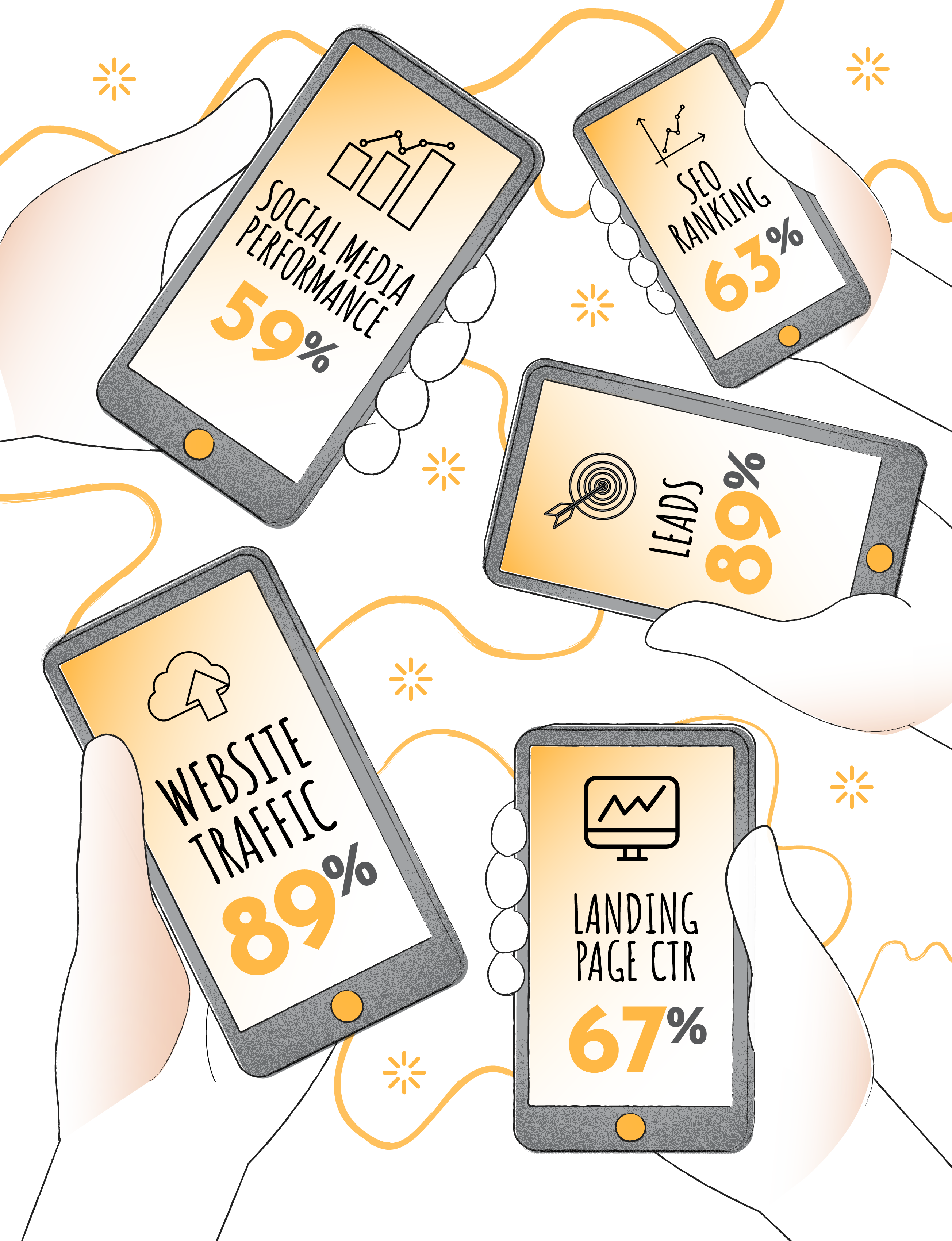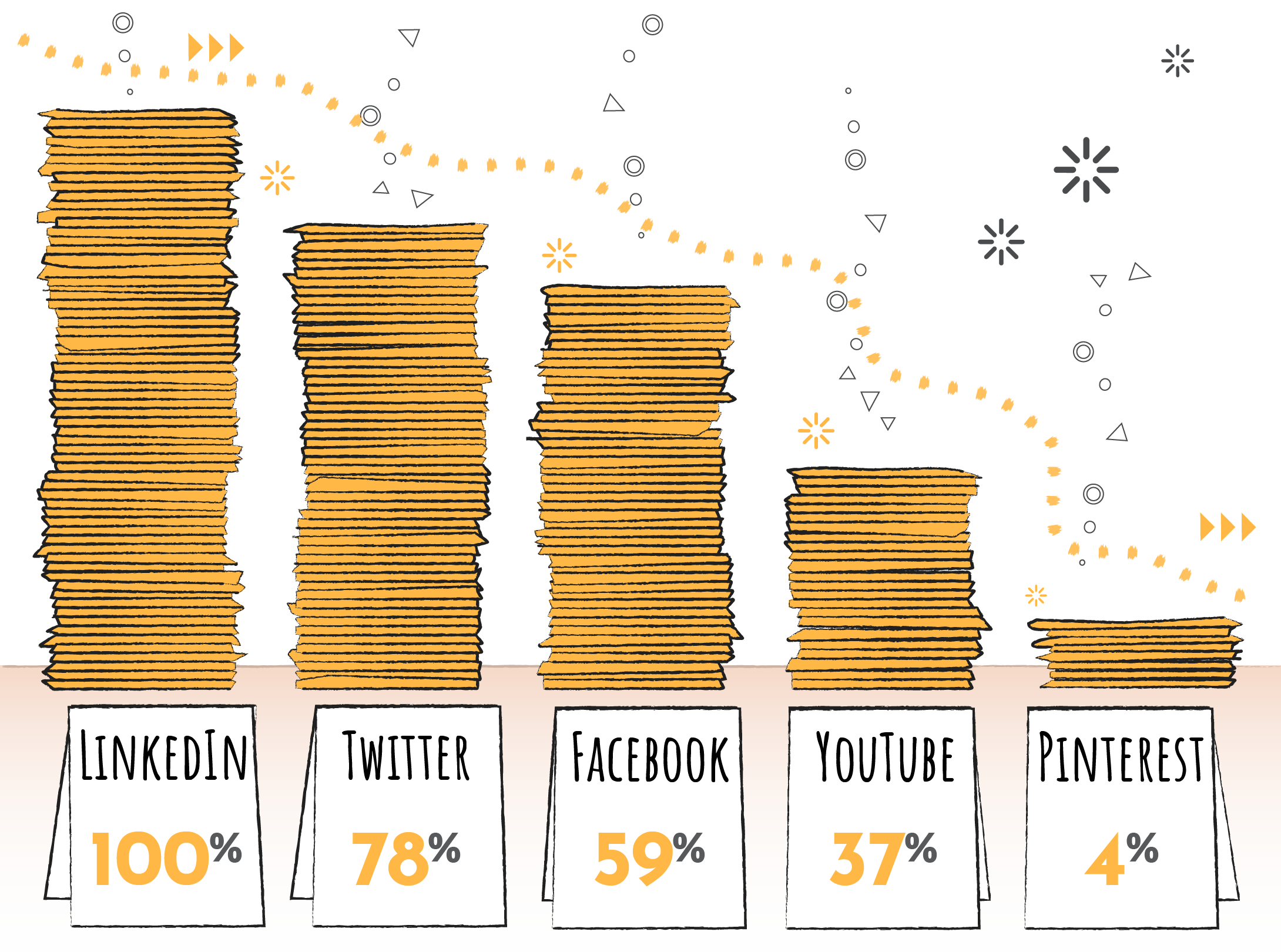

MOST POPULAR CONTENT MARKETING TACTICS
EMAIL
93
%
BLOGS
79
%
LANDING
PAGES 75 %
PAGES 75 %
CASE
STUDIES 64 %
STUDIES 64 %
EBOOKS AND
WHITE PAPERS 61 %
WHITE PAPERS 61 %
VIDEOS
AND VLOGS 46 %
AND VLOGS 46 %
INFOGRAPHICS
39
%


TOP PROBLEMS B2B CONTENT MARKETERS FACE
LACK OF
TIME 59 %
TIME 59 %
LACK OF KNOWLEDGE
AND TRAINING 56 %
AND TRAINING 56 %
INABILITY TO MEASURE
CONTENT EFFECTIVENESS 48 %
CONTENT EFFECTIVENESS 48 %
LACK OF BUDGET
44
%
TURNAROUND TIME
FOR CONTENT PRODUCTION 37 %
FOR CONTENT PRODUCTION 37 %


